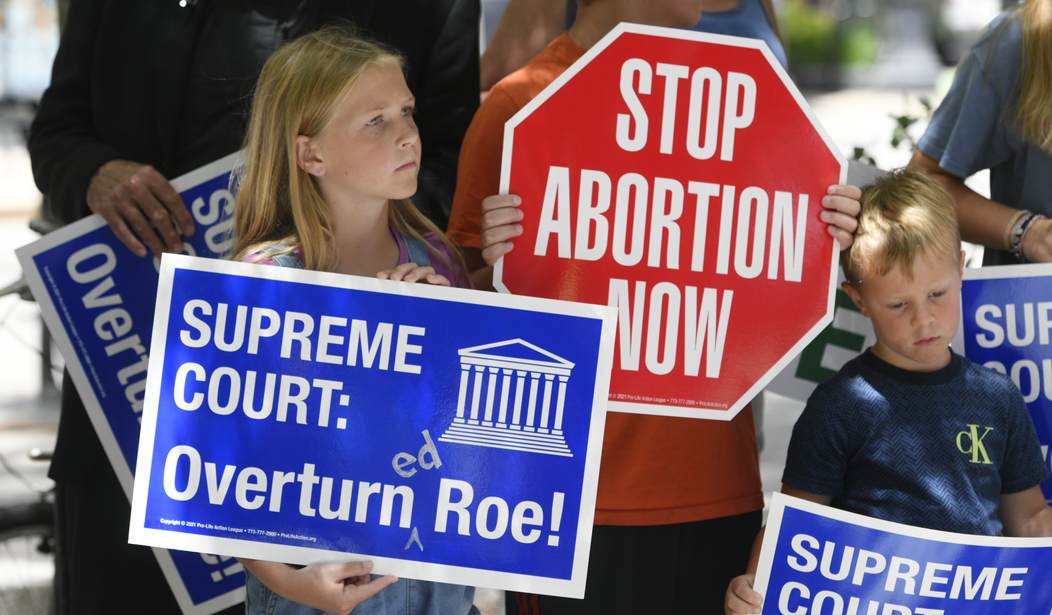Pro-life advocate Christina Bennet co-authored this article.
Pro-life voters need to wake up before the GOP debates are over, and one of their best chances to press ostensibly “pro-life” candidates for real answers – and real commitments– has passed.
Thankfully, we heard some leadership in last night’s debate when Governor Ron DeSantis defended his “heartbeat” law and emphasized the value of every human life; Chris Christie, meanwhile, laudably insisted that “you have to be pro-life for the entire life.”
But that was all from the debate stage, and another opportunity passed for candidates to stake out bold, uncompromising defenses of all human life from the moment of conception onward.
Let’s be clear about the stakes right now: abortion didn’t end after Roe. In a surprising number of cases, it hasn’t — at least in practical terms — been meaningfully restricted at all. Over 90% of all legal abortions in America occur prior to 13 weeks’ gestation, meaning they’re untouched by even 15-week bans. Of those, 65% occur prior to 8 weeks’ gestation.
The reality is that many state-level restrictions prohibit abortions that weren’t likely to happen in the first place, and the ones that do save preborn lives are frequently circumvented by abortion pills dispensed via telehealth, or are offset by the rise of aggressively pro-abortion states functioning as hubs.
Abortion is very much still a live political issue at the federal level, and the voting blocs that have historically coalesced around it still hold enough sway to make or break a political candidate’s future — but only if they choose to do so.
For this reason, among others, the leadership of the pro-life movement is more critical now than it’s ever been. That’s true at the federal level as well as for states. The stance the GOP presidential nominee adopts with respect to abortion could influence decades’ worth of policy and political debate.
Recommended
We know what former President Trump’s position is, more or less. He did in fact help pro-lifers overturn Roe v. Wade — and in his recent, now somewhat infamous interview with Meet the Press, he called Florida’s lifesaving “heartbeat” law a “terrible mistake” and promised voters abortion policy negotiations that end in peaceful compromise.
But is compromise what the pro-life movement wants? Are we comfortable negotiating over the number of innocent children we’re willing to accept being legally killed every year? Are we comfortable haggling over the age at which a human being’s death is publicly recognized to be a tragic and irreversible loss?
The abortion issue isn’t a spectrum. It isn’t a policy issue. It’s a moral problem, and a binary one at that. Either abortion is the killing of an innocent child, or it’s not.
Abortion is also an issue which, at its core, requires a kind of simplicity of heart and fortitude which makes prevarication over gestational limits unacceptable.
Pro-life voters ought to be asking the GOP nominees courting them: Why should I believe that you cherish human life? Why should I trust you with the future of America’s children, or with America’s most vulnerable mothers? Why should I trust you with the political advancement of human flourishing in any capacity?
Being a legitimately pro-life candidate isn’t about building consensus around symbolic legislation that ultimately fails to save preborn lives. That’s a reactive posture, the posture of someone using the pro-life vote to secure power.
Being — or becoming — a legitimately pro-life candidate is much simpler and much more difficult. The pro-life movement can and ought to call the GOP candidates to a higher standard.
Fight for life. Fight for justice. Fight for women, for families, for flourishing. Speak earnestly and confidently on behalf of the most vulnerable among us, and we will support you — because we share your mission.
Don’t waste your breath haggling over the amount of mass death you’ll accept.
Benjamin Watson is a former NFL player and current VP of Strategic Relationships for Human Coalition, a national pro-life organization. He authored the book, 'The New Fight for Life: Roe, Race and a Pro-Life Commitment to Justice'. Christina Bennett is a news correspondent for Live Action, board member of Pro-Black, Pro-Life and an advocate for pregnant women and their families.

























Join the conversation as a VIP Member